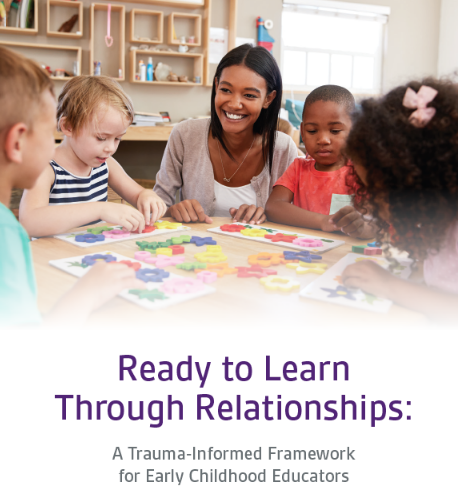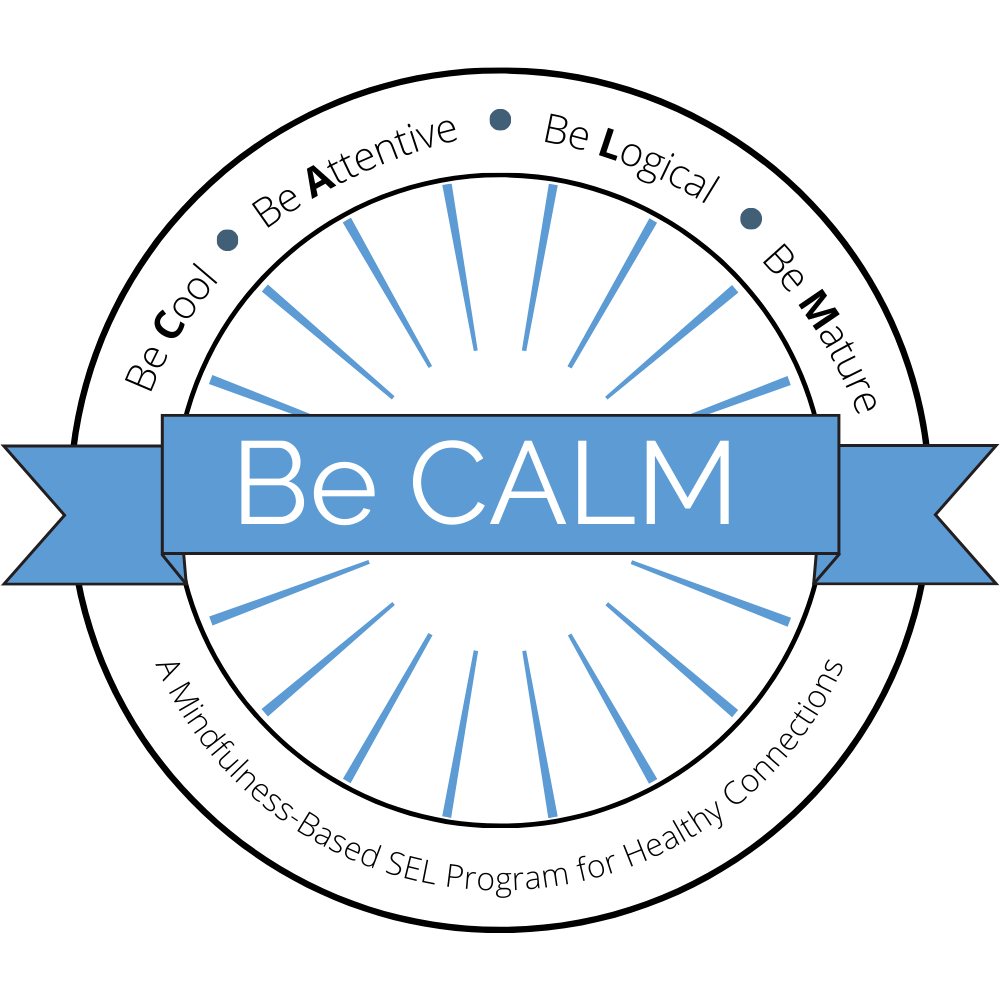Research
Current
Be CALM in Early College High Schools

This study will evaluate the effectiveness of a mindfulness-based social-emotional learning (SEL) program called Be CALM (Cool, Attentive, Logical, and Mature). The program will be delivered in multi-tiered format within Early College high schools. These high schools provide dual enrollment in college classes to students who have been traditionally underrepresented in post-secondary education. This whole-school intervention trains educators to create safe supportive environments, build responsive relationships with students, and teach SEL skills using a mindful co-regulation approach.
School counselors will coach teachers in curriculum delivery and provide additional support to those students experiencing the greatest stress and mental health needs. Program implementation will be assessed to support future scaling and an independent evaluation will determine the impact of the program on teacher wellbeing, school climate, and students’ SEL competencies and college readiness. The ultimate goal of this project is to support post-secondary educational success for students of color and those from first-generation and low-income backgrounds. Click to view press release.
Be CALM Counselors

The Be CALM Counselors study’s purpose is to develop, refine, and pilot test an IES-funded program (Be CALM Counseling) to increase counselors’ attunement to the stress-related needs of the diverse middle school populations they serve. Stress is highly prevalent among adolescents, even more so in the present times, and disrupts students’ learning as well as their emotional wellbeing. Although many different individual and contextual factors have been shown to promote stress resilience, emotion regulation is one of the most malleable and mindfulness is the approach with the strongest evidence for strengthening emotion regulation. Mindfulness is being widely used in U.S. classrooms. However, it has had limited application within school counseling, where more intensive skills instruction could occur for those students who are most vulnerable to the effects of stress, including those from disadvantaged backgrounds and with minoritized identities.
Adolescent Emotional Well-being

The Adolescent Emotional Well-being study aims to address the gaps in the assessment of emotional well-being (EWB) in adolescents. Adolescent stress rates have increased in the past few years, and this study examines the patterns of EWB and other factors. This study will improve preventive methods for adolescents to overcome stress and reduce stressors.
Past Studies
Ready to Learn Through Relationships

Ready to Learn Through Relationships (RLR) was an outcomes innovation project through the Head Start National Center on Health, Behavioral Health, and Safety (NCHBHS), and in collaboration with the Center for Childhood Resilience at Ann & Robert H. Lurie Children’s Hospital of Chicago, evaluating a trauma-informed professional development program for Head Start teachers. We explored what kind of training and technical assistance is needed for teachers to change their classroom environments and social-emotional teaching practices to promote wellbeing in young children exposed to trauma.
Be CALM Connections

The Be CALM Connections (BCC) study, in collaboration with Child Trends, delivered a mindfulness-based self-regulation program to adolescents to promote healthy relationship skills. Implemented in rural NC high schools, the BCC study explored how the program impacts adolescents’ outcomes regarding their interpersonal mindfulness skills, emotion regulation, and emotional well-being. Additionally, this study evaluated the implementation of the Be CALM program for teacher and student participants. For more information regarding the Be CALM program, please visit: https://www.becalmprogram.com/